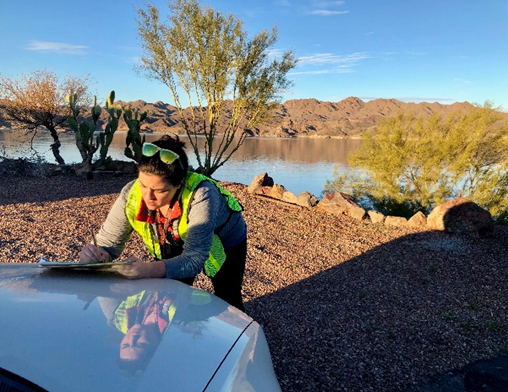Reporting Timeliness and Estimated Incidence of Nonfatal Opioid Overdoses After Implementation of Mandated Reporting — Arizona, June 15, 2017–June 14, 2018
- After the Governor declared a public health emergency in June 2017, the Arizona Department of Health Services mandated nonfatal opioid-involved overdose reporting and created a novel surveillance system to support this. We compared Arizona’s surveillance data with hospital discharge data, and found that information about nonfatal opioid-involved overdoses was available more than 100 times faster through Arizona’s surveillance system. Using both data sets, we estimated 9,071 nonfatal opioid-involved overdoses occurred in Arizona during the first year of mandatory reporting (June 15, 2017–June 14, 2018).
- Real-time surveillance could improve public health emergency preparedness by quickly detecting variations in nonfatal opioid-involved overdose trends. This could facilitate rapid intervention and enable public health to determine whether community-wide intervention strategies are effective.
- Arizona is positioned to be able to identify and respond to trends we see in nonfatal opioid-involved After community-wide interventions are implemented, this surveillance system will help us determine if what we are doing is working to decrease opioid-involved overdoses.
“Few states have identified an effective way to get accurate real-time data about nonfatal opioid-involved overdoses. Arizona is now one of the few that has a system of reporting in place, which gives public health a picture of what is going on in the community in near real-time and allows us to estimate the true incidence of nonfatal opioid-involved overdoses. This might help expedite interventions to prevent more people from experiencing opioid-involved overdoses.” -Sarah Scott, MD, EIS Class of 2018.”
-Sarah Scott, MD, EIS Class of 2018
 [PNG - 563 KB]
[PNG - 563 KB]Sarah Scott, MD, EIS Class of 2018, participates in a Community Assessment of Public Health Emergency Response (CASPER) to assess the impact of the opioid epidemic in La Paz County, Arizona.
CDC Media Relations
(404) 639-3286
media@cdc.gov

Sarah Scott, MD,
EIS Class of 2018
Arizona Department of Health Services
Education: MD: Vanderbilt University, 2014
BA: Vanderbilt University, 2009
Resident(Internal Medicine/Pediatrics):Vanderbilt University Medical Center, Nashville, Tennessee, 2015-Present
Chief Resident(Internal Medicine/Pediatrics): Vanderbilt University Medical Center, Nashville, Tennessee, 2017-Present
Intern(Internal Medicine/Pediatrics): Vanderbilt University Medical Center, Nashville, Tennessee, 2014-2015
Work Experience: Program Director, Manna Project
International – Ecuador, Orlando, Florida, 2009-2010
Volunteer Experience: Pediatrics Representative, Vanderbilt University Medical Center Housestaff Leadership Committee, Nashville, Tennessee, 2010-Present